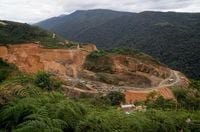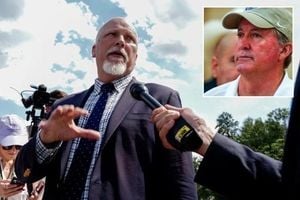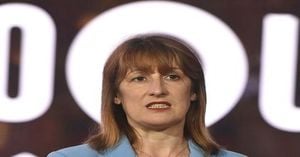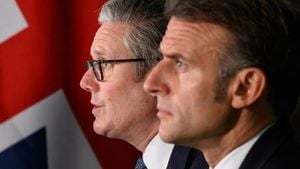Bolivia, a nation once considered a stronghold of Latin America’s socialist “pink tide,” is on the cusp of a historic political transformation. After nearly two decades of rule by the Movement Towards Socialism (MAS) and its charismatic, controversial leader Evo Morales, Bolivian voters have decisively rejected the old order. The country now faces a pivotal presidential runoff on October 19, 2025—an election that will not only determine Bolivia’s next leader but also signal the region’s shifting political winds and raise urgent questions about the fate of the Amazon and Indigenous communities.
Just two decades ago, democratic socialism was on the rise across Latin America. Bolivia, under Morales, joined Venezuela, Brazil, Argentina, and others in a wave that promised to upend entrenched inequalities. Morales, a former coca growers’ union leader, became Bolivia’s first Indigenous president in 2005. He swept into power with a bold agenda of nationalizing hydrocarbons, telecom, and mining, channeling newfound state revenues into social programs and infrastructure. According to Reason, this approach initially delivered results: Morales won three consecutive elections, and his government became a darling of international progressives.
But the dream soured. Morales’ efforts to stay in power indefinitely fueled frustration, and allegations of fraud in his 2019 re-election bid sparked mass protests and military intervention, forcing him to resign. Since then, Morales has retreated to his strongholds in the Bolivian Andes, facing an arrest warrant on sexual abuse allegations from at least five accusers—charges he dismisses as political persecution. Isolated and politically sidelined, Morales now watches as his party’s legacy unravels.
By 2025, Bolivia’s socialist economic model had collapsed. "Inflation, fuel shortages, and a devaluation that wiped out wages hit the popular base hardest," said Carlos Aranda, an economist with the Centro de Políticas Públicas para la Libertad, speaking to Reason. The numbers are stark: net reserves plummeted from about $14 billion a decade ago to just $2 billion, annual inflation soared to 25 percent, and fuel shortages left drivers queuing for hours—sometimes sleeping in their cars for a few gallons of gas. The MAS party, once dominant, barely cleared 3 percent in the August 2025 election, marking a dramatic repudiation of democratic socialism.
Into this political vacuum have stepped two candidates who, while promising change, are rooted in economic models that have drawn criticism for fueling environmental damage. The October 19 runoff will feature Sen. Rodrigo Paz, a pragmatic centrist and son of former President Jaime Paz, and Jorge “Tuto” Quiroga, a conservative technocrat who briefly served as president in 2001–02. Paz, who surged from just 2 percent in early polls to 32 percent of the vote, has built a coalition of disillusioned MAS voters and moderate urban professionals. His running mate, Edman Lara, is a former police officer and anticorruption social media influencer, adding outsider appeal to the ticket.
Quiroga, 65, campaigns on free markets, fiscal austerity, and the prospect of a deal with the International Monetary Fund. His running mate, tech entrepreneur Juan Pablo Velasco, brands their ticket as a modernizing "liberal duo." Quiroga’s calls for fiscal discipline and subsidy cuts echo the "shock therapy" reforms championed by Argentina’s Javier Milei, whose early successes in taming inflation and reviving growth have made waves across the continent.
Yet, as AP reports, many Indigenous and environmental leaders remain deeply skeptical that a change in leadership will address Bolivia’s most pressing ecological crises. The Amazon rainforest, of which roughly 8 percent lies within Bolivia’s borders, is a vital carbon sink and regulator of global climate patterns. But Bolivia is now one of the Amazon basin’s fastest-deforesting countries. Forest loss spiked dramatically in 2019, when Morales’ government eased burning rules and legalized agricultural clearing, fueling wildfires that wiped out nearly a million hectares. The destruction has continued, with 2024 fires scorching more than 10 million hectares—an area roughly the size of Iceland. According to Global Forest Watch, Bolivia recorded the world’s second-highest tropical primary forest loss after Brazil last year.
Indigenous communities and environmentalists say successive governments have failed to protect the land or their rights. Ruth Alipaz Cuqui, coordinator of the Indigenous alliance CONTIOCAP and a member of the Uchupiamona community, told AP, “Agreements are signed, commitments are made, laws and decrees are passed, but in the territory there is absolutely nothing applied.” She added, “The life of Indigenous peoples in Bolivia has gone from bad to worse. We will continue defending. It’s not just our lives, it is our very existence that is at stake.”
Both candidates have outlined proposals to address environmental issues—at least on paper. Paz has proposed a $15 billion “green government” funded by carbon credits, tighter controls on agricultural burns, and a crackdown on illegal gold mining. Quiroga’s campaign promises to tighten controls on forest fires, promote sustainable agriculture, expand biofuel production, and encourage reforestation. He also advocates for using carbon and green bonds to fund conservation efforts. However, critics warn that Quiroga’s proposals to end collective Indigenous land titles and expand soy and cattle production could accelerate deforestation and weaken environmental protections.
Vincent Vos, a Dutch-Bolivian researcher based in the Amazonian department of Beni, described the reality on the ground: “Santa Cruz has already lost 68% of their water reserves… we’ve got 30% less rainfall than a decade ago. Our fish is really completely contaminated by mercury already and people are really suffering from high levels of mercury poisoning.” Mercury, widely used in gold mining, flows into rivers and contaminates fish—a dietary staple for Amazonian communities. Studies have found alarmingly high mercury levels in people living along Bolivian rivers, echoing concerns across the Amazon basin.
Despite the environmental stakes, these issues have not been central to the campaign. Nick Fromherz, a Bolivian-based adjunct professor at Lewis & Clark Law School, told AP that both candidates have spoken broadly about fighting wildfires and managing the agricultural frontier but have offered few solutions to less visible crises like mercury contamination. For Stasiek Czaplicki, a Bolivian environmental economist, the danger lies not just in policy direction but in the state’s ability to enforce protections. He warned that Quiroga “would be worst for the institutions that defend the environment,” citing plans to open up Indigenous land titles and expand agriculture.
The world is watching. The outcome of Bolivia’s election reflects Latin America’s unpredictable political landscape, as noted by Eric Farnsworth of the Center for Strategic and International Studies. For the United States and other international actors, this moment presents an opening to extend support and influence in a region that often swings between left and right, hope and disappointment.
Bolivia’s next president will inherit a nation battered by economic collapse and environmental crisis. Whether Sen. Rodrigo Paz or Jorge Quiroga prevails, the challenge remains the same: to chart a new course that delivers stability, prosperity, and protection for both people and the planet. The stakes, for Bolivia and the Amazon, could not be higher.




